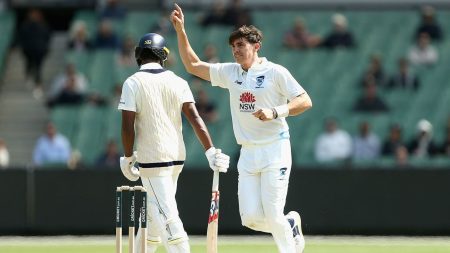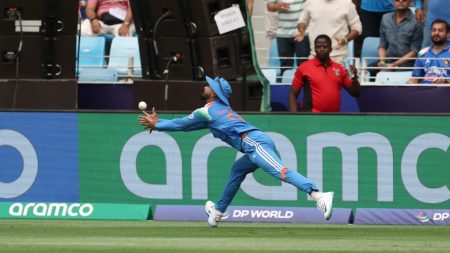Toss and Weather Conditions Dictate a Shortened Match
The toss at the Harare Sports Club was delayed by a 45-minute rain delay, which eventually reduced the match to a 18-over contest. Despite the unfavorable conditions, Ireland skipper Paul Stirling emerged victorious from the coin toss and elected to bowl first. Both teams were well aware of the implications of the toss, with Zimbabwe captain Sikandar Raza admitting that he would have also chosen to bowl first given the wet conditions. The decision to bowl first is a tactical move, aiming to exploit the early moisture on the pitch and the potential for dew later in the game.
Zimbabwe’s Series Lead and Unchanged Squad
Zimbabwe entered the match with a 1-0 series lead, a result that meant they were already assured of not losing the series, as the first game was washed out due to rain. This psychological advantage was evident in the team’s approach, with Raza expressing confidence in his squad’s ability to perform regardless of the toss outcome. Zimbabwe made no changes to their lineup, maintaining the side that secured the series lead in the previous game. The unchanged XI, led by Raza, included key players such as Tadiwanashe Marumani, Wessly Madhevere, and Blessing Muzarabani, all of whom have been in good form.
Ireland’s New Faces and Strategic Adjustments
Ireland’s decision to field a new lineup was influenced by their automatic qualification for the 2026 T20 World Cup, which allowed the team to experiment and introduce fresh talent. Paul Stirling’s side saw three changes, with debutant Tim Tector joining Fionn Hand and Matthew Humphreys in the playing XI. All three players had not featured earlier in the series, providing them with a valuable opportunity to showcase their skills. The inclusion of these new faces added a layer of excitement and unpredictability to Ireland’s lineup, with Stirling emphasizing the importance of giving these players a chance to prove themselves on the international stage.
Impact of the Wet Conditions on the Pitch
The weather conditions played a significant role in shaping the match, with the rain delaying the start and reducing the overs. Raza noted that while the pitch was expected to be dry by the time play commenced, the wet outfield could make batting easier, particularly in the latter stages of the innings. This assessment was crucial for both teams, as it required them to adjust their strategies on the fly. Ireland’s decision to bowl first was a calculated risk, aiming to make the most of the initial damp conditions and set a strong foundation for their batting performance later in the game.
The Debutants’ Potential Impact
The introduction of debutant Tim Tector, along with Fionn Hand and Matthew Humphreys, added a fresh dynamic to the Irish team. Tector, a promising all-rounder, was expected to contribute with both bat and ball, while Hand and Humphreys brought additional depth to the bowling attack. Their performances would be closely watched, as they had the potential to make a significant impact in this shortened match. The pressure on the debutants was palpable, but their inclusion also highlighted Ireland’s commitment to developing a strong, versatile squad for future challenges.
Setting the Stage for an Exciting Showdown
The stage was set for an exciting 18-over contest in Harare, with both teams eager to capitalize on the unique conditions. Ireland’s decision to bowl first and the debut of new players added a layer of intrigue, while Zimbabwe’s unchanged lineup and series lead provided a sense of stability and confidence. The match promised to be a test of adaptability and resilience, as both teams navigated the challenges posed by the weather and the shortened format. With the series on the line and the prospect of a thrilling finish, cricket fans in Harare and around the world were in for a memorable evening of cricket.











